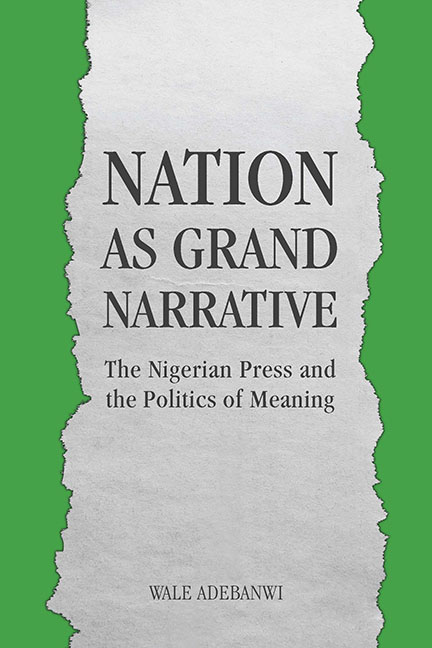Book contents
- Frontmatter
- Dedication
- Contents
- List of Illustrations
- Acknowledgments
- Part I Contextual and Conceptual Perspectives
- Part II Colonial Agency and Counterhegemonic Struggles
- 3 In Search of a Grand Narrative: The Press and the Ethno-Regional Struggle for Political Independence
- 4 Hegemony and Ethno-Spatial Politics: “Nationalizing” the Capital City in the Late-Colonial Era
- Part III Inclusion, Exclusion, and Democratic Contestations
- Part VI Domination and Resistance in Majority-Minority Relations
- Conclusion: Beyond Grand Narratives
- Notes
- Bibliography
- Index
3 - In Search of a Grand Narrative: The Press and the Ethno-Regional Struggle for Political Independence
from Part II - Colonial Agency and Counterhegemonic Struggles
Published online by Cambridge University Press: 16 February 2018
- Frontmatter
- Dedication
- Contents
- List of Illustrations
- Acknowledgments
- Part I Contextual and Conceptual Perspectives
- Part II Colonial Agency and Counterhegemonic Struggles
- 3 In Search of a Grand Narrative: The Press and the Ethno-Regional Struggle for Political Independence
- 4 Hegemony and Ethno-Spatial Politics: “Nationalizing” the Capital City in the Late-Colonial Era
- Part III Inclusion, Exclusion, and Democratic Contestations
- Part VI Domination and Resistance in Majority-Minority Relations
- Conclusion: Beyond Grand Narratives
- Notes
- Bibliography
- Index
Summary
In the decade leading up to Nigeria's independence, the three major ethno-regional blocs in the country, the eastern region, the northern region, and the western region, organized essentially around thethree major political parties, the National Council for Nigeria and the Cameroons (NCNC) the Northern People's Congress (NPC), and the Action Group (AG), respectively. The struggle to define the character and logic of the emergent state and imagined grand nation by the many ethnic nationalities of the regions, through the leveraging of group interests within the larger context, was evident in the majornewspapers that represented each of these major political parties and, by extension, their regions.
The date for the attainment of self-rule was one of the principal controversies of this era.Whento achieve political independence and move together into an independent future with a common destiny was as important—and as challenging—ashowto do so. On March 31, 1953, the Honorable Anthony Enahoro introduced a motion in the House of Representatives to resolve “as [a] primary political objective the attainment of self-government for Nigeria in 1956.” The AG member added that “the bare idea of self-government is no longer attractive, is no longer enough.”
Ahmadu Bello, the leader of the NPC and the Sardauna of Sokoto, aborted this effort through a dilatory motion. He introduced the adoption of an amendment substituting the words “as soon as practicable” with “1956.” A “bitter and tempestuous” debate ensued, during which the members of the NCNC and AG staged a walkout. Bello clarified the position of northern delegates, stating that “before we commit ourselves, we must … seek a mandate from our peopleso that when we speak we know that we are voicing their feelings…. [Motions like this] merely serve to destroy interregional unity which the [Richards] Constitution is building.” Bello added that “sixty years ago, there was no Nigeria but merely a collection of communities very different inoutlook and mode of life.”
The events that followed the crisis in the House almost ended the possibility of an independent and unitedNigeria. After the adjournment, northern members of the House were abused by the Lagos crowd and subsequently ridiculed and criticized by the southern press for what was believed to be their opposition to independence in general, and independence in 1956 in particular.
- Type
- Chapter
- Information
- Nation as Grand NarrativeThe Nigerian Press and the Politics of Meaning, pp. 47 - 82Publisher: Boydell & BrewerPrint publication year: 2016

